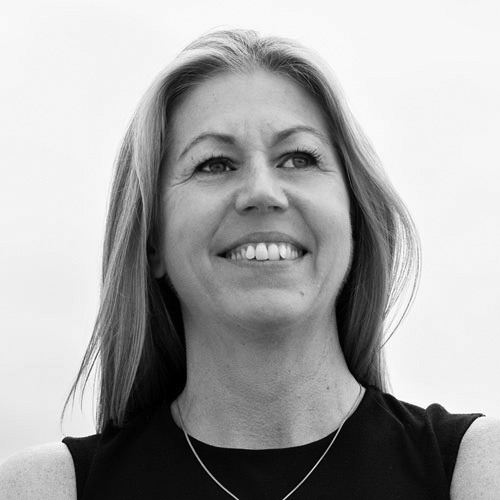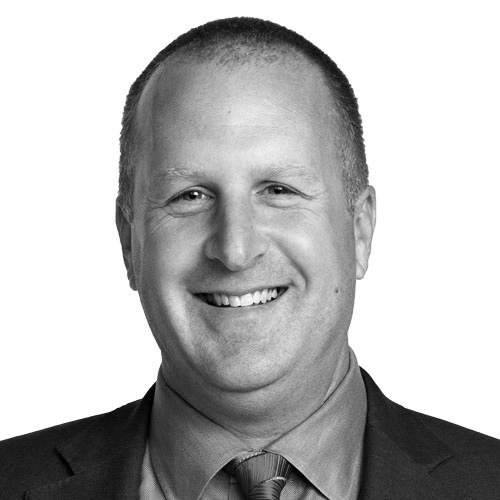The third largest privately held insurance broker in the United States, USI Insurance Services, has to ensure that more than 4,400 employees in 140 offices are working to mitigate risks. As vice president, assistant general counsel, and chief compliance officer at USI, Terry Burston blends his experience in compliance and legal departments to achieve the company’s goals.
What made you want to go into law?
During my senior year at the University of Georgia (UGA), I was a member of the LeaderShape UGA program. Sponsored by UGA’s law school, it sought to expose undergraduates to the different aspects of the law—aspects beyond the Perry Mason or Matlock we see in courtroom TV drama. In particular, it focuses on corporate legal departments, and we went to visit various companies in Atlanta. Seeing how lawyers worked within business units of large companies drove me to apply to law school.
Did you go straight into corporate law?
After I graduated from Howard University School of Law in 2002, I returned to Atlanta and worked for two large law firms: King & Spalding for two years and Hunton & Williams for one year. I then joined Willis North America, a global insurance broker, on a regional basis based in Atlanta. A year later, I was promoted and relocated to New York.
You focused primarily in compliance, correct?
At Willis North America, I was the deputy head of compliance for two years, ran the compliance department for North America for two years, and then, for my last two years there, was assistant general counsel. I joined USI in 2012, in a role that combined my compliance and legal experience.
What do you consider your most important role, currently?
At the moment it’s in the capacity of chief compliance officer. As the company grows—and faces changing and developing regulations—the real value I add is ensuring our policies and procedures keep up with regulations and are appropriate for the size of the company as we continue to grow.
Is that a challenge?
There are consistently more regulations coming out on the state and federal level that impact not only financial services companies, but more specifically insurance. Ensuring we stay in compliance with those, while realizing our business goals and staying profitable, requires a balancing act on the risk continuum.
Are there any other industry trends affecting your role?
One is an increased focus on cybersecurity. Looking at data breaches other companies have experienced, there’s an expectation that we have a robust cybersecurity policy as well as adequate privacy controls—particularly in our business, as we handle a lot of personal client data.
How important is it for someone in your role to understand the core business?
It’s critical. Being grounded in what the business does and what its goals are is critical to being the trusted adviser businesspeople are looking for. They want you to understand the business goals against the backdrop of regulation so you can more effectively evaluate compliance risk as well as establish policies and procedures.
How do you do that? What’s your involvement with the business?
Early in my career, I spent a lot of time working with particular business units and, in some instances, actually going through what we call a placement file, which is taking a client from engagement to placement of all its insurance needs, to really understand step-by-step of how we service our clients. Now I have regular contact with the business teams at all levels, from field personnel all the way up to the C-suite, so I feel like I am dialed into the corporate direction and focus points for the organization.
Do you have any tips or advice for employees to be seen as an indispensable part of an organization?
Be good at what you do. Here at USI, we have a somewhat flat organization of skilled people in specialty areas, be it employment or mergers and acquisitions. I like to call it the all-star team because the people are generally knowledgeable but developed in their practice areas. Beyond that, I recommend that you attend seminars, stay on top of the current investigations and cases, and be able to present to the business in a way that’s adding value.
When crafting a network of outside counsel, what are you looking for? Do you hire the firm or hire the individual?
There are exceptions to this rule, but I tend to hire lawyers rather than firms. Having worked with several large law firms over the past ten years, I have been better serviced by the lawyers I have had a relationship with even when they have changed firms. I continue to work with them even when they move to another firm because I trust their expertise and responsiveness.
Do you have any advice for lawyers seeking to follow in your footsteps?
Be willing to accept new challenges. As I noted, I was the first person to take on the regional compliance officer role for Willis. I did so enthusiastically, building on it, and that allowed me to progress for ten years.
Client service is important to USI Insurance Services and Barnes & Thornburg LLP, which is only one of the reasons Barnes & Thornburg is pleased to work with the respected insurance company on its legal and business goals. The others involve partnering with a dynamic legal team guided by Terry Burston on numerous contract, insurance, and corporate matters. Finding creative, cost-effective solutions for clients is what we are both all about.

